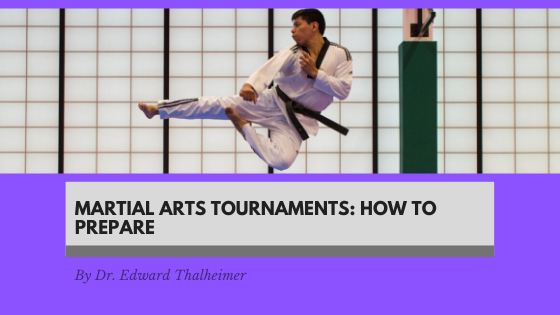Martial arts classes offer sparring, which is a respectable means of developing and improving one’s skills. A tournament, however, allows students to go beyond practice to expand their skills. Through competitions, students find themselves venturing beyond their comfort zones, matched with competitors who are new to them as they test their skills, gain motivation, and build confidence. Students do these things, all while observing top-level competitors. A few tips will help prepare to be a competitor in a martial arts tournament.
Train Without Overdoing It
Training is, of course, a priority before a competition in a tournament. Drills and sparring help set muscle memory as well as getting the student into the competition mindset. To train with a partner also gains students feedback, moral support, and helps them to understand better how they and the competitor might react when certain scenarios play out on the mat. The master should be sought for insight, such as form improvement, to prevent injuries and improve performance in the tournament.
Rest
While training, remember that rest is an equally important part of the activity. The body can burn out without proper rest. This can result in injuries that prevent students from attending the tournament as a competitor. Bodies keep working even when training is not in session. This is important for any martial arts athlete to keep in mind before competing.
Get in Shape
The technique is not the only thing to work on as a tournament comes into sight on the calendar. Getting in proper shape is vital as well. This ensures that a student has the necessary stamina to perform at peak level in each fight. Strength training and cardio should be remembered in a variety of exercises that go into this goal.
Be Mentally Prepared
A student will need to deal with nerves as well as a potential adrenaline dump. This latter is when the body prepares for either a fight or flight. Symptoms of this natural response include nausea, freezing up, sweaty palms, and laughing or crying uncontrollably. Mental preparedness includes awareness that this might happen. Placing things in the proper perspective can help. There is no real outcome to fear unless the student fears injury or loss of ego.

